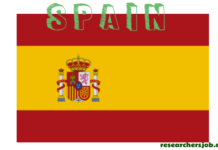PhD in Quantitative Genetics: Aarhus University invites applications for a PhD scholarship within the Graduate School of Technical Sciences, aiming to explore genetic admixture’s impact on genomic research methodologies in both human and livestock populations. This research will aid in developing improved genomic prediction methods while understanding the complexities of genetic backgrounds in admixed individuals.
PhD Fellowship in Quantitative Genetics: Improving the Efficiency of Genomic Research in Genetically Admixed Populations
Designation
PhD Fellow in Quantitative Genetics
Details Overview
| Detail | Information |
|---|---|
| Research Area | Quantitative Genetics and Genomics |
| Location | Centre for Quantitative Genetics and Genomics, Aarhus University, Denmark |
| Eligibility/Qualification | – Master’s degree (120 ECTS) in a relevant quantitative field (quantitative genetics, statistical genetics, animal science, agrobiology, computational biology, or related fields). – Interest in statistical and quantitative genetics. – Experience in scientific programming (e.g., Julia, R, Python). – Fluent in English (written and spoken). – Strong organizational and communication skills. – Additional experience in genetic parameter estimation, evaluation, Bayesian data analysis, or large data set analysis is desirable. |
| Job Description | – Develop and test genomic prediction methods accounting for genetic background effects in admixed populations. – Compare accuracy of statistical approaches for predicting genetic merit in dairy cattle and polygenic risk scores in humans. – Investigate genomic prediction accuracy across generations. – Disseminate results through conferences and publications. |
| How to Apply | Interested applicants should submit their application through the link provided under the ‘How to apply’ section of the university’s scholarship page. It is required to upload the project description as a PDF. |
| Last Date to Apply | 26 January 2025, at 23:59 CET |
Research Area
The research focuses on understanding how diverse ancestral origins within genetically admixed populations affect genetic backgrounds and phenotype expressions of complex traits. Key methodologies involve simulations and analysis of real data from both human and dairy cattle populations.
Additional Information
Preferred starting date for the PhD position is 1 May 2025 or later. For further details, potential candidates are encouraged to reach out to the main supervisor, Luc Janss (luc.janss@qgg.au.dk) or the co-supervisor, Emre Karaman (emre@qgg.au.dk).









